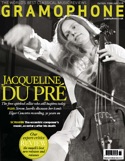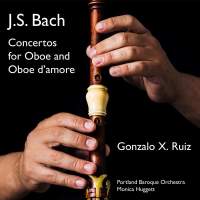Texte paru dans: / Appeared in: |
|
|
Outil de traduction (Très approximatif) |
|
|
Reviewer:
David
Vickers
The Presto conclusion to a G minor adaptation of a harpsichord concerto (F minor, BWV1056) speaks with conversational ease, and pizzicato lower strings and sensuous violins form a delectable platform for lyrical oboe in the central Siciliano in an F major adaptation of another harpsichord concerto (E major, BWV1053). Ruiz uses a mellow oboe d’amore for a concerto rescored from BWV1055 (keeping the same key of A major). The double harpsichord concerto in C minor (BWV1060) is transferred with persuasive idiomaticness to oboe and violin (played by Huggett with a fine sense of chiaroscuro); but the most elaborate concerto in its editorial construction, BWV1059, uses organ-and-strings movements from the alto cantata Geist und Seele wird verwirret (No 35), which flank a sweetly delicate Adagio lifted without alteration from Ich steh mit einem Fuss im Grabe (No 156). This is an exceptional union of scholarly curiosity and excellent musicianship. |
|
|
|
|
|
Cliquez l'un ou l'autre
bouton pour découvrir bien d'autres critiques de CD |
|




